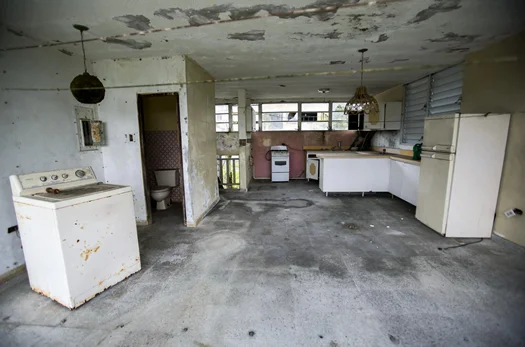News
Should Tenants Who Pay Their Rent on Time Be Eligible for A Mortgage?
For millions of members of ‘generation rent’, getting on the property ladder is simply a pipe dream. By the time they’ve paid their rent, organised their outgoings, and put food on the table, there’s little left to play with. Even for those who manage to scrape together the bare bones of a deposit, they may lack the established credit rating needed to qualify for a mortgage. This, despite the fact that they’ve responsibly paid their rent on time for years—maybe even decades.
It is a frustrating situation to find yourself in, but a surprisingly common problem nonetheless. To such an extent that a recent petition saw more than 145,000 people demand a change in legislation, which would see regular and timely rent payments considered on a person’s credit report, If the initiative was to go ahead, this would mean a good track record of paying your rent could help you qualify for a mortgage.
With the petition having exceeded the 100,000 signature threshold by a significant margin, the issue is being debated by the government at an official level.
The effect of rental payments on mortgage applications
When you sign up for a credit service or hire-purchase agreement of any kind, your subsequent actions are recorded on your credit score. If you keep up with the payments and repay the balance as agreed, your credit score improves. If not, it takes a hit.
Nevertheless, the single largest and most important outgoing in the lives of millions has no such effect at either end of the scale. With rental payments, the responsibility or otherwise of the tenant isn’t normally taken into account. It doesn’t have any impact on your credit report and won’t be considered by the vast majority of mortgage lenders.
This bizarre imbalance is what led campaigners to begin taking the petition seriously. It was started by one responsible individual who’d paid no less than £70,000 in rental payments on time. Jamie Pogson was bemused as to why this clear demonstration of responsible financial behaviour made no difference whatsoever to his would-be mortgage application.
Particularly when given how the slightest oversight—even applying for a line of credit and being refused—can wreak havoc on your credit score.
Is it worth keeping a clean sheet?
Even if you’re able to provide concrete evidence of your responsible history of on-time rent payments, there are no guarantees the typical High Street lender will be interested. Nevertheless, it’s worth remembering that the one thing every major lender does when considering a mortgage application is inspect the applicant’s bank statements.
They want to see what’s going out and what’s coming in, which may include how regularly (or otherwise) you are paying your rent. Even if it has no bearing on your credit score, it could still have an impact on the way your financial history and current circumstances are perceived.
Hence, it’s a good idea to keep a clean sheet with your rent payments, even if it doesn’t necessarily boost your credit score. Whether the government decides to bring about new legislation remains to be seen, but for the time being at least, it’s a pretty painful blow for common sense and the responsible financial activities of millions of tenants across the country.
Alternative options…
If a traditional mortgage is out of the question for any reason, there are always alternative options to explore. From subprime mortgages to flexible secured finance to bridging loans and so on, a conventional mortgage may not be the only option—or even the most affordable option.
If in doubt or struggling to qualify, speak to an independent expert for advice on the alternative options available. Work out the costs of a mortgage using our UK mortgage calculator.
Deposit and purchase capital raised for a renovation project at standard bridging rates
Buy-to-let mortgage arranged within 6 months of property ownership
Our client, a relatively inexperienced property investor, was looking to quickly purchase what she deemed to be a new, bargain investment property. To do this, our client wanted to raise the maximum possible deposit using a recently purchased investment property as security, which had been bought with a bridging loan arranged by ourselves.
The security property was in very poor condition when purchased but had now been swiftly renovated to a standard that was sufficient for mortgage lenders to use as security. We were able to raise all the money required for the new purchase by raising the deposit on the already-owned property via a buy-to-let (BTL) mortgage, and the remainder needed for the new purchase and renovation was arranged as a light refurbishment bridging loan at the same interest rates as a standard bridging loan.
The BTL was allowed even though our client had not yet owned the property for 6 months. We were able to navigate the 6-month rule, i.e., a property needs to be owned for 6 months before refinancing at a higher value, because we were able to evidence the work carried out by our client and value added during the period of ownership, and the bridging lender also supplied BTL products that were specifically designed for this type of transaction.
Our client intended to renovate the new investment property, which was uninhabitable and not suitable for mortgage purposes, and sell it for a profit once it was complete to repay the bridging loan.
Another Retailer at Risk? Is This a Sign of Things to Come?
UK retail news has been blighted as of late with a near-infinite string of permanent closures. It’s no secret that there are more retail stores closing their doors in the UK than ever before, painting a rather bleak picture for the UK retail sector as a whole.
The most recent casualty to join the apparent downfall is Bon Marché, which is now under threat after more than 35 years on the UK High Street. Currently operating 312 stores across the country, the company is expected to post significant losses of more than £5 million in 2019. Its owner, billionaire Philip Day, has given a reason to suggest stores and jobs in worrying numbers could be under threat.
Reading into the headlines, you begin to wonder: how many retail businesses are there in the UK that can survive long-term? Considering what percentage of retail sales are online in the UK, you can’t help but feel a sense of pessimism for the High Street as we’ve traditionally known it. Right now, an incredible £4 out of every £100 spent in the UK is scooped up by Amazon alone.
This represents just one of many thousands of online businesses making life difficult for the traditional British retailer.
How much is the UK retail industry worth?
With figures like these, you’d expect the total value of the UK retail industry to have plummeted to next to nothing. In reality, this simply isn’t the case. In total, the UK retail industry is valued at in excess of £358 billion annually. Despite the ongoing challenge posed by web retailers, online sales still account for just 17% of overall annual retail sales.
That’s according to the Office for National Statistics, suggesting there’s still plenty of room in our lives for the traditional retailer.
Somewhat less surprisingly, the 21st century retail landscape of the United Kingdom is led by the four biggest supermarkets. Tesco, Sainsbury’s, Asda, and Morrisons account for the lion’s share of the revenues generated on the High Street, attributed largely to their convenience, ease of access and impossibly low prices.
Nevertheless, the web retail industry is accelerating at its fastest-ever pace, growing at a rate of more than 20% annually. As far as economists are concerned, this is set to continue indefinitely and could further increase pressure on the high street.
Avoiding overheads
By eliminating any number of overheads from the equation, online retailers are able to sell products at significantly lower prices than their high-street cousins. From physical premises to vast workforces to general upkeep costs and so on, the reduction of operational expenditures results in huge savings being passed on to the customer.
At the same time, retail property leases, taxation, and general operational costs are increasing for traditional retailers. all compounded by the convenience of 24/7 accessibility, free shipping, and the most enormous range of products now available online at the touch of a button.
But does all of this spell the complete demise of the High Street? Not exactly. It’s simply a case of shifting focus to a different aspect of customer expectations.
Experiences with products
When polled, customers who continue to favour traditional High Street retailers spoke of their preference for the ‘experience’ as a whole. Being able to walk into a welcoming and atmospheric store, speak to a knowledgeable representative, examine products first-hand, and generally make an experience of the whole thing
A sentiment shared by the CEO of Harrows stated that the key to long-term success on the UK high street lies in focusing on the benefits online retail cannot replicate. Challenging perhaps, but achievable by getting to know what exactly any given target audience responds positively to and providing it at the highest possible level.
Selling a Property Through Probate? How Much Tax Do I Have to Pay?
Concerned about how to pay inheritance tax before probate? In need of advice on how to value personal property for probate? Given the importance and sensitivity of such transactions, sourcing independent expert advice should be your first port of call.
What Is a Probate Property?
Dealing with the loss of a loved one is challenging enough without the added complications of handling complex probate and inheritance tax issues. In the simplest terms, a probate property is a property an individual takes ownership of that has been named in the final will and testament of a deceased individual.
Irrespective of whether you intend to sell the property, you may be liable for probate tax, aka inheritance tax, in the United Kingdom. The importance of an accurate probate valuation of property cannot be overstated, nor can securing expert representation help relieve some burden. From obtaining a grant of privilege to dealing with all administrative and taxation requirements, it’s important to have an experienced team behind you.
Do I have to pay inheritance tax?
In England and Wales, you will be liable for an inheritance tax payment if the total estate bequeathed to you has a combined value in excess of £325,000. This is the existing inheritance tax threshold—the limitation of the inheritance you can receive without having to pay tax.
If the total value of the estate exceeds £325,000, a full 40% is payable on the amount that goes beyond this threshold.
What Does Probate Have to Do with Inheritance Tax?
When an individual receives ownership of a property through a final will and testament, they must obtain a Grant of Representation to confirm their legal ownership of and rights to the estate. In order for this to happen, the entire estate must be valued and inheritance tax obligations calculated.
The process cannot be completed until the recipient of the estate is able to prove that they have paid the inheritance tax due in full or provide formal evidence that inheritance tax is not payable. By working with an experienced and reputable probate specialist, the entire process of evaluating the property and establishing inheritance tax liability can be accelerated and simplified significantly.
A typical example
In a working example, an individual is left a property in the final will and testament of a parent. The property has a probate valuation of £475,000, which is also the maximum value the property is likely to sell for in the current market. Assuming this is the total value of the deceased individual’s estate, this amounts to £150,000 above the current inheritance tax exemption threshold.
This would mean that 40% of the £150,000 would be payable to satisfy inheritance tax requirements, amounting to a total of £60,000.
However, there are countless variables that could affect the total tax liability in both directions. From charitable contributions to capital gains tax to the type of property and its intended use, it isn’t quite as simple as establishing basic inheritance tax obligations alone.
The importance of responsible representation
The representation you secure throughout the process could have an enormous impact on the costs incurred. Avoidance of taxation isn’t an option, but there are often avenues to explore to minimise the amount of tax you’re required to pay. all while simplifying a complex legal and legislative process during an incredibly difficult time of life.
At the earliest possible stage, therefore, secure the most capable and experienced representation available. Doing so could save you time, money, and a lot of unnecessary hassle along the way.
Have Banks Recovered from the Recession?
More than a decade has passed since the financial crisis that crippled the UK. In the meantime, banks and lenders across the country have been working tirelessly to regain their strength and positioning. Lloyds Bank recovery and Bank of Scotland debt recovery initiatives have been well publicised, but where exactly do we stand right now?
Have post-recession recovery efforts reached their objectives? Or are the scars of the recession still visible across the UK economy?
The UK’s recovery from recession
The truth is, the answer lies somewhere down the middle. In terms of recession recovery, the UK has experienced an impressive eight years of solid growth since the height of the crisis. In addition, employment levels have repeatedly hit record highs along the way.
Nevertheless, this doesn’t mean the UK’s recovery from the recession is complete. Some facts and figures still make for less than reassuring reading, despite evidence that things are at least heading in the right direction.
Wages
For example, average wages are no higher today (in inflation-adjusted terms) than they were 14 years ago. Promises have been made by the Bank of England to continue improving wages for UK workers, but annual increases of around 2.5% pale in comparison to the 4% annual average prior to the financial crisis. So while progress has been made, there’s still a long way to go.
Productivity
The stagnation of productivity in the UK has proved particularly problematic and stubborn over the past decade. In fact, productivity growth since 2008 has trudged along at its slowest pace in almost two centuries. Economists point the finger at low interest rates, poor management, and a lack of investment. problems that continue to hang over the British economy today.
Housing market
Steady growth in housing market activity has helped many banks and lenders repair at least some damage brought about by the recession. Once again, however, things are still performing at an exponentially lower level than prior to the crisis. For example, mortgage approval volumes are still down around 40% compared to a decade ago, with minimal inventory contributing to average property price increases of 17%.
Government debt
Extensive efforts have been made to bring government debt under control, which exploded wildly in the months and years following the crisis. A decade of frugality and budget cuts have made a dent, but there’s still a glaring gap between government spending and tax revenues.
EU withdrawal
Last but not least, nobody has any real clue as to the possible implications of the UK’s exit from the European Union. an issue that is currently affecting every aspect of the British economy. From house prices to interest rates to personal and business borrowing, people are more cautious about their financial decisions than they’ve been in some time. Some of which is playing into the hands of banks and major lenders, some prolonging the recovery process and prompting fears of another economic crisis.
For more information on the current state of the UK banking sector or to discuss our services in more detail, contact UK Property Finance for an obligation-free consultation.
How Much Property Does the Royal Family Own?
You wouldn’t expect the British Royal Family to be anything but fabulously wealthy. You’d also expect the Queen to own more than her fair share of prime real estate across the UK.
But what you might not know is how many royal properties there are in Britain or the total value of royal family properties. You’d expect it to be a lot, but how much exactly?
How many properties does the Royal Family own?
Aside from the most obvious properties owned by the Royal Family, there are a handful of other estates you might not have realised were regal. Buckingham Palace, in all its 775-room glory, is perhaps the most famous of all royal properties in the UK. Nevertheless, the official residence of the Queen represents just one entry to her £13 billion property portfolio.
That’s right… £13 billion, enough to put many of the world’s biggest property tycoons to shame!
In terms of specific properties, detailed below, you’ll find a handful of royal properties you may not have realised were under the watch of the world’s most powerful landlady:
The Savoy Estate, London
Next time you take a stroll down one of the most iconic strips in London’s West End, spare a thought for its lucky owner. Yes, the Queen is the official owner of this part of the Strand, which is also home to the world-famous Savoy Hotel and the Savoy Theatre.
Regent Street
Believe it or not, the Queen is the official owner of Regent Street, as in the entire street. One of the most famous streets in London, the UK, and the entire world, Regent Street is renowned for its glamorous stores and for making an appearance in the game of Monopoly. This one street alone employs more than 20,000 people and attracts a whopping 7.5 million tourists each year. It was also the first street in the world designed specifically with shopping in mind.
Balmoral Castle
No surprises here, what with Balmoral being the most treasured place of all for Her Majesty to relax and unwind. It’s been a royal residence since 1852, occupying a massive 20,000-hectare plot in a beautiful open area of Aberdeenshire.
Sandringham House
Measuring in at a comparatively compact 8,000 hectares, the Queen’s Sandringham Estate was purchased back in 1862 by Queen Victoria. Since then, it’s been a favourite among royals of all ages for relaxing and unwinding in an idyllic countryside setting.
Windsor Castle
Boasting more than 1,000 years of rich history and heritage, Windsor Castle is considered by many to be the most important royal residence. It’s certainly the oldest and most imposing, not to mention the place the Queen herself heads most weekends to relax. If the Royal Standard is flying, you know she’s home.
Other Properties….
In addition to the regal residences above, the Queen is also the owner of 263,000 acres of farmland, 11 hectares of forests, and 30 offshore wind farms. Oh, and let’s not forget Royal Ascot—also her rightful property!
All in all, a pretty spectacular property portfolio with a combined value in excess of £13 billion.
FAKE NEWS: Bridging Loans Are Just for Property Investors
It’s common to assume that bridging loans are aimed exclusively at property investors. Since the dawn of bridging finance, these specialist loans have served as an invaluable lifeline for developers and investors at all levels. But to assume bridging finance is available only for property investment purposes is to do these flexible funding solutions a huge disservice.
When are bridging loans used?
In practice, a bridging loan can be used in any instance where a significant sum is required as quickly as possible for a comparatively short period of time. As the loan is typically paid back within a matter of months, bridging loan rates and overall borrowing costs can be exponentially lower than those of more traditional mortgages and lending products.
You only need to check out a bridging loan calculator to see just how affordable bridging finance can be.
What are bridging loans used for?
Designed to cover moderate to major expenses on a strictly short-term basis, bridging loans can be the cheapest available option. But in what instances are bridging loans considered useful? Aside from major property investments for business purposes, when else may a borrower find bridging finance the ideal funding solution?
Purchasing properties at auction
It’s worth remembering that it isn’t only investors and developers that take an interest in properties at auction. If the home of your dreams goes under the hammer at a bargain price, a bridging loan could cover the costs until you sell your current property.
Avoiding repossession
Struggling homeowners facing the threat of repossession have very few viable avenues to explore. However, a more amicable alternative to repossession could be to pay off the outstanding balance in full with a bridging loan, sell the property, repay the loan, and retain any additional equity. far better than simply relinquishing ownership of the property in its entirety.
Funding home improvements
Borrowing against the equity tied up in your property by way of a bridging loan can also be useful for funding home improvements and alterations. From simple renovations to challenging extension works, a bridging loan can provide the funds required in a matter of days.
Covering business costs
For business owners in general, bridging finance represents an open and accessible financial solution for covering urgent and unexpected costs. One example of this is meeting unexpected tax liabilities, which simply cannot be put off until a later date. If a substantial amount of money is needed and needed fast for business purposes of any kind, bridging loans are worth considering.
All-purpose private borrowing
If the required collateral can be provided to cover the cost of the loan, bridging finance can be secured for almost any purpose. Just as long as the balance of the loan and all borrowing costs can be repaid as agreed, private borrowers have complete freedom of choice with how they allocate the funds. vehicle purchases, a new business establishment, or even an extravagant holiday to pay for at a later date. Limitless scope and absolutely zero limitations from a uniquely flexible and accessible funding solution.
For more information on any aspect of bridging finance or to discuss your requirements in more detail, contact a member of the team today.
Couple purchase their first home against the odds
Last year, the number of first-time buyers reached a 12-year high. Undeterred by Brexit, a mass movement of hopeful first-time buyers looked to take advantage of the stamp duty relief introduced in the winter budget of 2017. The Bank of England, under growing pressure to increase interest rates, helped circumstances with a slight increase in rates to 0.75% in the summer.
Like many eager young purchasers, our clients from Leicester were no different. Ben and Jess had been living with their parents for 18 months in a desperate bid to save for their first home. The couple had very specific requirements for location and property type. The location was important because they wanted to be situated in an affluent area in between both sets of parents. Ben and Jess were very much in agreement; they both loved the traditional double-bay-fronted semi-detached houses. Unfortunately, within the search area, they had dramatically limited themselves to the choices available.
After six months of searching, Ben found the golden ticket on Right move during his lunch break at work. A double-bay-fronted house within a mile each side of their parents Ben called Jess to tell her the good news, and later that day he booked a viewing for the following weekend.
Fast-forward to the post-viewing discussion: driving home, Ben and Jess had fallen in love with the house. They had scoped the place out fully and even discussed where their furniture would go. The property was slightly more expensive than they had hoped, and the sellers weren’t offering any negotiation on the asking price. The couple had to pull on the bank of mom and dad to increase the deposit so they could begin their mortgage application.
‘In steps UK Property Finance…’
During the mortgage application process, it came to light that Jess had some adverse credit. This was due to an incorrect postal address and not being aware of a commitment to repay. Panicked and confused, Jess had to find an alternative broker. UK Property Finance stepped in to keep the couple’s dream of owning their own home alive. UK Property Finance were called upon to find them a lender that would not only consider the gifted deposit but also the adverse credit history. UK Property Finance had to relay the circumstances to the lender to give context to the situation. In 48 hours, the team had managed to find a lender who offered low costs and a competitive rate. After the application had been submitted, the couple could get back on track with the typical sale process.
8 weeks later, they have now completed the transaction and are slowly moving their belongings from mom and dad to their new home. Ben had to contend with changing jobs during the transaction, but because of the constant update from UK Property Finance, he was able to inform the lender with employment references, and what could be quite a stressful situation was resolved swiftly.
If you’re a first-time buyer and have concerns over adverse credit, please get in touch to see if UK Property Finance can get you moving.








